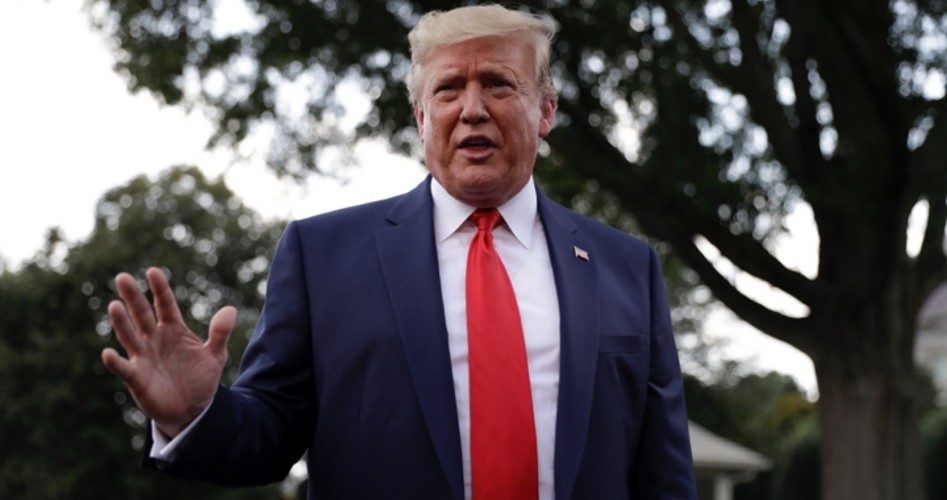
Podcast: Play in new window | Download ()
Subscribe: Android | RSS | More
Following passage of the two-pronged budget/debt-ceiling bill by the Senate on Thursday, President Trump tweeted triumphantly: “Budget Deal is phenomenal for our Great Military, our Vets, and Jobs, Jobs, Jobs! Two year deal gets us past the Election. Go for it Republicans, there is always plenty of time to CUT!”
The “deal” avoids the automatic cuts under the Budget Control Act (BCA) which, without Congressional action, would have cut government spending by $125 billion. Instead, those cuts were avoided and government spending was increased. It also eliminates the debt ceiling for two years, well past the November presidential election.
As The New American noted last week, the deal “is a win for everyone except taxpayers” who will ultimately pay for the government’s unlimited largesse through higher taxes, reduced benefits from social programs such as Social Security, or inflation of the currency by the Federal Reserve.
Senate Minority Leader Charles Schumer (D-N.Y.) was ecstatic: The deal ends “the automatic sequester created by the 2011 Budget Control Act, which mandated $125 billion in automatic spending cuts this year without congressional action.… For too long the arbitrary, draconian limits of sequester have hampered our ability to invest in working Americans and in our military readiness. This deal ends the threat of [the BCA and its] sequester permanently.”
The spending/debt-ceiling package was hammered out during months of negotiations between the White House, Treasury Secretary Steve Mnuchin, Senate Majority Leader Mitch McConnell, and House Speaker Nancy Pelosi. Trump’s budget director, the fiscally conservative Mick Mulvaney, officially the director of the Office of Management and Budget (OMB), was cut out of the negotiations.
The Senate passed the bill 67-28, with just 23 Republicans voting against it. One of them, Senator Rand Paul (R-Ky.), was exasperated when his bill to amend the deal by putting in a new set of caps on government spending was easily voted down. He said, “This may well be the most fiscally irresponsible thing we’ve done in the history of the United States.” Paul agreed with Maya MacGuineas, president of the Committee for a Responsible Federal Budget, who remarked following passage of the bill by the House that it might “end up being the worst budget agreement in our nation’s history, proposed at a time when our fiscal conditions are already precarious.”
With the removal of the last vestiges of any fiscal restraint under the deal, the only barrier to future government spending lies with the bond market. For the moment, investors in U.S. treasuries are more than happy to soak up the additional bonds that Mnuchin will be offering for sale to cover Congress’ spending. U.S. Treasury securities, in the words of one Wall Street sage, are “the cleanest dirty shirt on the clothesline.” Ten-year government securities being offered by Japan and Germany are both paying negative rates of return, while those from the United Kingdom are paying a scant half of one percent. U.S. treasuries, on the other hand, are paying nearly two percent, making them a very attractive, and perhaps the only, place of refuge in a world that seemingly cares little about limits or restraints on government spending.
Promises by the president to cut spending in the future apply only if he is reelected, and only if enough newly elected Senators and members of the House have enough backbone to force him to keep them.
Photo: AP Images
An Ivy League graduate and former investment advisor, Bob is a regular contributor to The New American, writing primarily on economics and politics. He can be reached at [email protected].
Related article:


